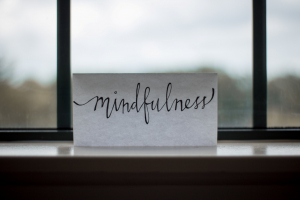When you find yourself in distress of any sort, it helps to know that there’s a professional that can help you to deal with your problem. If your pipes burst or water isn’t flowing through your pipes properly, having a plumber on call is an advantage.
 If your lights short out and you have no clue what to do, having an electrician you can call is a good thing. In a catering emergency, having a specialist who can provide good quality and can cope with large volumes at short notice will save an event from disaster.
If your lights short out and you have no clue what to do, having an electrician you can call is a good thing. In a catering emergency, having a specialist who can provide good quality and can cope with large volumes at short notice will save an event from disaster.
When it comes to our marriage and family relationships, the distress can be especially difficult to cope with because of how close those people and issues are to our hearts. Knowing that there are professionals who are skilled at understanding human behavior and relational dynamics gives you options to pursue.
Getting the help you need for your relationships will help you to restore and cultivate those relationships, giving them the room and environment to flourish. A licensed marriage and family therapist specializes in dealing with the complex problems that come up between a married couple or within a family.
If you’re struggling in your marriage or as a family, consider approaching a trained and licensed marriage and family therapist to help you get things back on track. Who are these licensed marriage and family therapists, and why is it a good idea to call on them when you’re in distress?
What’s a Licensed Marriage and Family Therapist?
A licensed marriage and family therapist is a relationship specialist. Marriage and family therapists receive extensive training in family counseling and individual psychotherapy models. Their training develops their skills at listening, assessing, and applying practical interventions to improve the quality of life and relationships of their clients.
Marriage and family therapists address the behavior of all the family members and how this behavior affects relationships between family members and the family as a whole. Their path to qualification and licensure looks something like this.
 To become a marriage a family therapist, the path begins by obtaining an undergraduate degree, typically with a major in counseling, psychology, social work, or sociology. However, marriage and family therapists do come from other backgrounds. In addition to this undergraduate degree, a therapist will also have to get an advanced degree in marriage and family therapy or a related field.
To become a marriage a family therapist, the path begins by obtaining an undergraduate degree, typically with a major in counseling, psychology, social work, or sociology. However, marriage and family therapists do come from other backgrounds. In addition to this undergraduate degree, a therapist will also have to get an advanced degree in marriage and family therapy or a related field.
The advanced degree will ground them in the theories as we as practical skills they will need to do their work well. This will help them to understand not only how human beings think, feel and act, but develop the skills to accurately diagnose problems and develop a proper treatment plan. Most graduate students will take on hours of clinical work while they are studying, which will expose them to real-world situations and allow them to develop as therapists.
When they complete their advanced degree, which is either a master’s degree in Family or Marriage Therapy or psychology, or a Master’s in Mental Health Counseling, they must undergo additional clinical training under supervision, which is designed to help increase their self-awareness of their weaknesses and strengths, areas that may need further training, and potential personal biases that need be addressed.
The number of hours required for licensing varies depending on the state, but the average is around 3,000 hours of supervised clinical experience. When they have completed these hours of supervision under a qualified individual, they must then take and pass the state regulatory board licensing exam before they are officially licensed as therapists.
Depending on the state regulatory board, the licensure titles they will use will differ. So, after qualifying, the therapist may carry the title of Licensed Marriage and Family Counselor (LMFC), Licensed Marriage and Family Therapist (LMFT), Licensed Associate Marriage and Family Therapist (LAMFT), Certified Marriage and Family Therapist (CMFT), or Licensed Clinical Marriage and Family Therapist (LCMFT).
 When they have applied for and received a license to practice, to maintain that license, the therapist must abide by whatever rules and regulations the state regulatory board has set and keep up with their continuing education hours. Continuing education means that the therapists must take courses that will help them to remain current on new developments in their field, among other things.
When they have applied for and received a license to practice, to maintain that license, the therapist must abide by whatever rules and regulations the state regulatory board has set and keep up with their continuing education hours. Continuing education means that the therapists must take courses that will help them to remain current on new developments in their field, among other things.
In other words, it takes years of specialized training for a person to become a Licensed Marriage and Family Therapist, which ought to increase confidence when approaching them for assistance.
What types of issues do they deal with?
If you’re looking for a trained and licensed family and marriage therapist, it helps to know what kinds of issues they are trained to deal with. A licensed marriage and family therapist may deal with a broad range of psychological and physical problems which include:
- a family member’s eating disorder, such as anorexia or bulimia
- other mental health issues such as depression, anxiety, or schizophrenia, and their impact on the family
- conflict between the married couple
- the conflict between the parents and a child (or the children)
- issues of substance abuse, such as drugs or alcohol
- lack of sexual intimacy, or sexual disfunction
- child behavior problems that may be affecting friendships or academic performance
- dealing with grief, such as the loss of a loved one or family pet
- weight issues
- issues with elder care, such as coping with a parent or grandparent struggling with dementia.
How do I find the right therapist for me and my family?
First, it’s useful to know where you can find a licensed marriage and family therapist. They may be found in places as diverse as:
- religious organizations such as churches
- general medical hospitals
- outpatient care centers
- residential care facilities
- mental health clinics
- state-funded clinics and services
- offices of other health care professionals such as doctors
- private practices
- military or Veterans Affairs offices
- public or private schools
- universities (whether private or public)
 It’s also helpful to know what to expect when you go for marriage and family therapy. Marriage and family therapy is usually a short-term, solution-focused therapy. This means that typically you will go for an average number of twelve sessions but depending on the severity and complexity of the issue you are dealing with, you may have more sessions with your therapist to arrive at a meaningful resolution.
It’s also helpful to know what to expect when you go for marriage and family therapy. Marriage and family therapy is usually a short-term, solution-focused therapy. This means that typically you will go for an average number of twelve sessions but depending on the severity and complexity of the issue you are dealing with, you may have more sessions with your therapist to arrive at a meaningful resolution.
Because they address the dynamics between the family members and of the family as a whole, the sessions with your therapist may be split between individual therapy and time spent on family therapy, couple’s therapy, or both, where needed.
The way your therapist can help you is by using a variety of therapeutic techniques such as cognitive-behavioral therapy. For example, your therapist will aid you by helping you to make decisions about your future; encouraging you and your family to discuss your experiences and emotions.
They can help you and your family adjust to difficult changes and process your reactions to difficulties such as divorce, grief, job layoffs, or struggles at school; help you and your family develop the skills and strategies you need to change your behavior and cope with difficult situations, and help you develop the tools to support one another through your difficulties.
In addition to finding someone who is qualified, as pointed out earlier, you need to find and work with someone that you and your family members trust and feel comfortable working in a counseling context. Find a therapist whose location and availability works for you all. Feel free to ask them questions about their approach.
People with a Christian faith background may want to ask your potential therapist if they can integrate Scripture and scriptural wisdom into your treatment plan so that they can help you spiritually as well. Taking that important first step to getting help will set your family on the right track toward a flourishing home life and set of relationships.
“Counseling Session”, Courtesy of Christina@wocintechchat.com, Unsplash.com, CC0 License; “Group Therapy”, Courtesy of Leon, Unsplash.com, CC0 License; “Mindfulness”, Courtesy of Lesly Juarez, Unsplash.com, CC0 License; “Devotions Together”, Courtesy of Priscilla Du Preez, Unsplash.com, CC0 License








